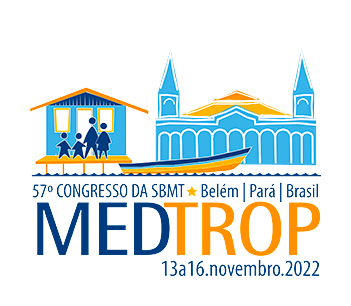Dados do Trabalho
Título
The genome of the neotropical malaria vector Anopheles aquasalis: Identification and evolutionary analysis of digestion-related genes
Introdução
The genomic analysis of anophelines allows us to understand better how the biological factors of the insects work. We can use these data to improve malaria control, by identifying and characterizing digestion, immunity, and detoxification genes.
Objetivo(s)
This work aims to perform the genome annotation of the malaria vector An. aquasalis, identify genes related to digestion, and evaluate the phylogenetic relationship.
Material e Métodos
Initially, coding sequence (CDS) and proteins from An. aquasalis genome were annotated using the MAKER and AUGUSTUS (unpublished data). Digestion genes described in Vectorbase proteome reference of An. gambiae was used as a query to identify sequences by homology using a standard protein-protein BLAST. For evolutionary analysis, a phylogenetic tree was built using the Neighbor-Joining method, with 1000 bootstrap replicas in MEGA-X.
Resultados e Conclusão
It was identified 241 digestive-related genes in An. aquasalis genome: Fifty-six genes related to carbohydrate hydrolysis, as alpha-amylases and alpha-glucosidases; fifty-one for lipid hydrolysis, as lipases and phospholipases; and 134 genes for protein hydrolysis, as aminopeptidases, carboxypeptidases and gut serine proteases. In comparison to the other anophelines, An. aquasalis only showed fewer genes than An. gambiae with 301. An. darlingi showed 231 genes and An. albimanus 205 genes in its Vectorbase reference proteome. Phylogenetic relationships with other anophelines worldwide showed the digestion genes of An. aquasalis are most closely related to the neotropical mosquitoes An. darlingi and An. albimanus. Orthologous gene clusters among the four anopheline species have been conserved in important families. Some of these conserved genes found in the An. aquasalis genome has already been described as new possible tools for vector control, such as; receptor genes for larvicidal toxins, such as alpha-amylase; genes that can function as targets for transmission-blocking vaccines, such as aminopeptidase N1 and carboxypeptidase B; and also the importance of characterization of blood meal digestive enzymes that can negatively or positively affect Plasmodium development in the midgut, such as the serine proteases trypsin and chymotrypsin. These data can contribute to new structural and functional studies on anopheline digestive proteins. We hope that this characterization can be used for the development of new malaria control strategies.
Palavras-chave
Genome annotation; Anopheles; Digestive genes; Phylogeny.
Área
Eixo 04 | Entomologia / Controle de Vetores
Categoria
(Concorra com apenas um trabalho) Concorrer ao Prêmio Jovem Pesquisador - Doutorado
Autores
Rodrigo Maciel Alencar, Cesar Camilo Prado Sepulveda, Luis Eduardo Martinez-Villegas, Gigliola Mayara Ayres D’Elia, Rosa Amélia Gonçalves Santana, Nagila Francinete Costa Secundino, Marcus Vinícius Guimarães Lacerda, Ana Paula Marques Duarte, Wuelton Marcelo Monteiro, Leonardo Barbosa Koerich, Paulo Filemon Paolucci Pimenta
